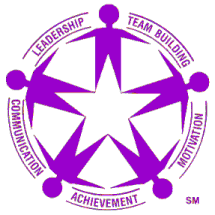

Communicate
Institute

NEW Winter/Spring '26 course offerings are now posted!!
Start with the "Schedules" Tab for details
COURSES & DESCRIPTIONS
Adventures In Attitudes - Human Relations for Educators EDT6692
Bringing out the Best in Students: -Developing Performance Character EDT6750
Brain Power Strategies EDT6900
Courage for The Discouraged EDT6901
The Well-Informed Educator EDT6932
Creative Teaching Strategies for Teaching Core Standards EDT6725
LifePOWER: -Strategies for Reducing Educator and Student Stress EDT6690
Engaging the 21st Century Learner thru Technology EDT6749
Educating for Character -Developing Moral Character EDT6724
Effective Instruction EDT6729
Hands on Math K-8 EDT6748
Succeeding with Students of Poverty EDT6916
IQ-EQ Connections - Helping Kids Care EDT6438
Literacy for Learning - Reading & Writing Across the Curriculum EDT6701
The Teacher's Toolbox EDT6915
Time & Life Mastery - Time Management for Educators EDT6696
Positive Discipline in The Classroom EDT6731
Risk to Resilience - Strength-Based Interventions for Students EDT6747
Power of Inclusive Classrooms EDT#6937
Author: Linnea Olbon
Rationale: We are living, in a time like no other in our history, where understanding and appreciation of diversity is non-negotiable for educators. Inclusion is where differences of people are valued and used to enable everyone to thrive, learn and work together effectively.
Focus: The focus of this course is to break down areas that are marginalized and gain further understanding so that educators can focus on the strengths and challenges of their students, while understanding the “why” behind students’ actions, decisions and behaviors. Whether it’s race, gender, ethnicity, language, disability, family background and/or income, all these factors help shape who people are, how they function and the decisions they make.
Purpose: The purpose of this course is to assist and empower educators to possess the knowledge and skills necessary to understand, appreciate, manage and educate ALL students in a welcoming, successful and risk free environment where everyone belongs! You will learn researched-based practices to help engage, motivate and inspire all learners to be their personal best. Participants will leave the class with the knowledge, skills and a deep understanding of how to reach all students, including those who are marginalized. Both instructional and social emotional strategies will be dissected so educators walk away with practical tools they can implement immediately. Authentic scenarios and simulations will be embedded within the course to allow participants to experience firsthand what many of our students, and families, experience. Information and concepts in this class are based on the research of Dr. Robert Marzano, Dr. John Hattie, Dr. Carol Ann Tomlinson, Dr. Rick Stiggins, Dr. Harry Wong, Dr. Eric Jensen, Dr. Ruby Payne and others.
Course Objectives
Below is a list of specific skills this course is designed to guide you towards obtaining. Each assignment you complete in this course will contribute to your growth towards meeting these goals. After this class has ended, it is my hope that you will use these skills in your daily life.
To learn the importance of seeing all students as individuals in the classroom, and the effect of "intentionally" putting that into practice to help students be successful learners.
To explore differences in people and learn to personally understand and value those differences, while maybe not always agreeing with them
To understand that knowing our students, and building those relationships, are key to all learning
To gain researched-based knowledge and best practices in "teaching all students", while making learning relevant
To gain authentic researched-based knowledge and best practices in effectively "managing challenging behaviors"
A few things participants will learn:
● Understanding marginalized populations and our role as educators
● Strategies for successful inclusion
● Managing an effective inclusive classroom
● Resources to help support inclusion
● Best practices in student engagement and differentiated instruction
● Intentional instructional planning for all students